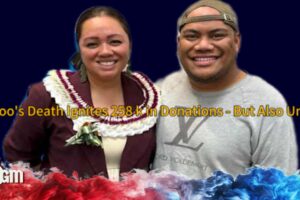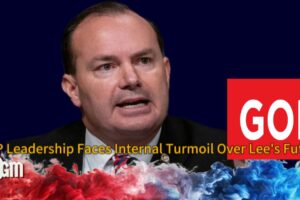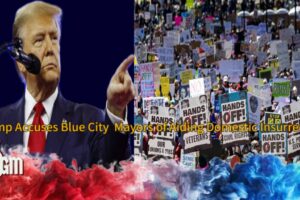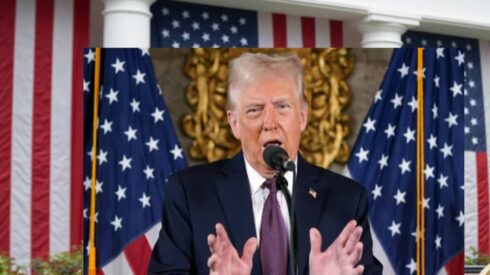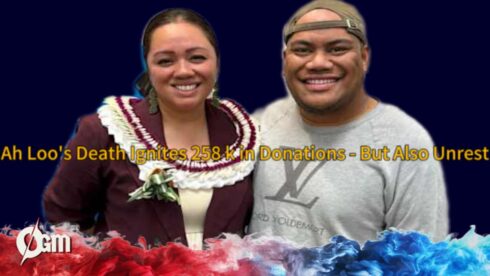President Donald Trump declared on Sunday that he intends to restore Columbus Day to its “rightful” place in American culture, rejecting his successor Joe Biden’s practice of recognizing Indigenous Peoples Day alongside it. Posting on his Truth Social platform, Trump announced, “I’m bringing Columbus Day back from the ashes,” criticizing Democrats for what he described as their efforts to destroy the reputation of Christopher Columbus and diminish the contributions of Italian Americans.
Trump’s comments come as part of his broader campaign to revive what he calls “traditional American icons,” accusing Democrats of rewriting the nation’s history to fit a narrative of diversity and oppression. Under President Biden, Columbus Day remained a federal holiday, but in 2021, Biden issued a proclamation also recognizing Indigenous Peoples Day — a move that activists hailed as a long-overdue acknowledgment of Native American history and suffering.
Columbus Day: A Tradition Rooted in American Diversity
While Trump champions Columbus Day as a symbol of America’s traditional heritage, the holiday itself has a complex history. Columbus, a native of Genoa, Italy, never set foot on the North American mainland, but his voyages were celebrated by generations of Italian immigrants seeking acceptance in the United States. Following the lynching of 11 Italian immigrants in New Orleans in 1891, President Benjamin Harrison led the first national Columbus Day celebration as a gesture toward Italian Americans.
President Franklin D. Roosevelt later designated Columbus Day a national holiday in 1934, embedding it into American civic tradition. Ironically, the holiday Trump defends as a cornerstone of traditional America was itself an early symbol of the country’s growing diversity. Yet in recent years, Columbus’ legacy has been increasingly scrutinized due to the exploitation and violence inflicted on Indigenous peoples following European colonization.
Biden’s Shift Toward Indigenous Recognition
President Biden’s 2021 proclamation marked a historic pivot, officially honoring Indigenous Peoples Day at the federal level for the first time. In his statement, Biden praised “the invaluable contributions and resilience of Indigenous peoples,” acknowledging that America had “never fully lived up” to its promises of equality, particularly with regard to Indigenous rights and dignity.
Activists and many local governments across the United States — including cities like Los Angeles, San Francisco, Seattle, and even Columbus, Ohio — had already moved to either replace or supplement Columbus Day with Indigenous Peoples Day prior to Biden’s federal action. Meanwhile, states like New York have opted to recognize both holidays, maintaining traditions like New York City’s massive Columbus Day parade while officially acknowledging Indigenous Peoples Day under Governor Kathy Hochul’s administration.
Trump’s Cultural Battle Over American History
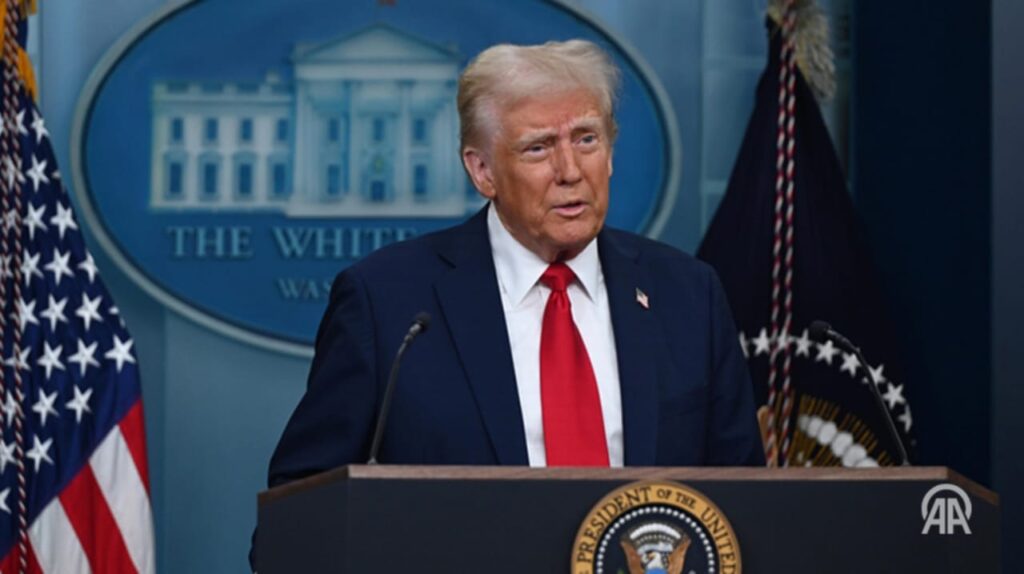
Trump’s commitment to restoring Columbus Day fits squarely within his broader cultural campaign against what he sees as the “rewriting” of American history. Throughout his presidency and beyond, he has railed against efforts to remove or relocate statues of historical figures like Columbus. In 2017, he criticized New York City officials for considering the removal of the 76-foot-tall Columbus statue at Columbus Circle — a monument that remains standing but has faced significant protest.
In the wake of the 2020 Black Lives Matter protests, dozens of Columbus statues nationwide were toppled, defaced, or removed amid growing awareness of historical injustices. Trump’s administration even financed the restoration of a Columbus statue in Baltimore that had been thrown into the harbor during racial justice demonstrations following the murder of George Floyd. His renewed focus on Columbus Day underscores his strategy of rallying voters who believe traditional American narratives are under siege.
The Future of Columbus Day in American Culture
The debate over Columbus Day is likely to continue as the nation approaches major anniversaries such as the 250th celebration of American independence in 2026. Trump’s vocal support for Columbus Day could further energize cultural conservatives, while Democrats and activists advocating for Indigenous recognition show no signs of retreating.
Despite Trump’s proclamation, federal holiday observances ultimately depend on presidential proclamations and local government decisions. As of now, many municipalities across the U.S. recognize both Columbus Day and Indigenous Peoples Day simultaneously, reflecting an evolving and often uneasy compromise. Whether Trump’s push will shift the broader cultural landscape remains to be seen, but his Sunday declaration makes clear that he intends to make the issue a symbolic flashpoint in the coming election season.



